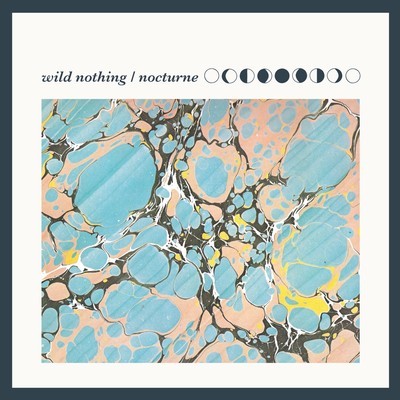Despite the moniker that suggests a band, Wild Nothing’s music is of a kind that could have only been created by a singular mind. In this case, that mind belongs to Virginia native Jack Tatum. His debut album Gemini was a collection of songs written around personal feelings, lone desires and regular departures into dreams. Even when other people were brought up, they were always described from Tatum’s personal viewpoint. Wild Nothing’s second album, Nocturne, continues along this path; the dreams are still an ever-present theme, Tatum is still singing from a personal perspective and the music still wonderfully cushions these ideas and visions.
There is however, on Nocturne, a newfound confidence from Tatum. This could have come from the fact that he enlisted producer Nicolas Vernhes, and in doing so recruited someone who has added some new elements to what was already a rather broad sonic pallet. Before, Tatum always had nods to timeless rock stalwarts – Fleetwood Mac, New Order and Talk Talk amongst others – but here on Nocturne he is starting to meld those sounds more ably than ever and tracks such as “Through The Grass” and “Paradise” manage to evoke a certain feeling that was rife in music from thirty years before they were created, hinting at a quality of timelessness that is hard to quite pin down.
The percussion here is a big factor while never being over the top or show-stealing. Whether it’s a simple quick-paced beat underlining a simplistic pop number like “Only Heather,” or whether popping right into your ear drums on a song like “This Chain Won’t Break,” they provide the perfect framework through which Tatum can weave his multiple layers of melodies (“weave” being the only way to truly describe how Tatum manages to piece together the synths, vocals and various other layers on Nocturne).
Lyrically and vocally too, Tatum seems more confident. On Gemini he’d plead “where are you? Can I come with you?” or be yearning to escape back inside one of his dreams. Here on “Midnight Song” Tatum sings “midnight song, sing you to the moon/ I am your quiet night, you were gone too soon,” again touching on the fleetingness of these moments, while on “The Blue Dress” he admits “I dreamt of you so sweet/ in the garden of my touch,” and in both cases (and across Nocturne) he seems pacified by these visions, reveling in the memories, rather than coming across as desperate to relive them. On “Paradise” Tatum is visited in his sleep by a dancer who teaches him that “love is paradise”; a belief that probably stems from Tatum’s newfound inner peace, but the love that Tatum finds is short lived, be it with Rheya, Heather, or another unnamed partner from one of these songs, he seems to be happy for them to flit in and out of his life like dreams.
Earlier this year Wild Nothing released the stand alone single “Nowhere,” which predicted a more up-front and poppy approach from the band, but in the wake of Nocturne it seems that that was something of a red herring, as the album returns has opted for hushed vocals and subtler instrumentation akin to the first album. This isn’t to say that Wild Nothing have not progressed at all; Nocturne is a more complete and cohesive album than its predecessor, and small things like the live strings used on opening track “Shadow” suggest directions in which their sound might still move. Nocturne proves that Tatum is firmly at the centre of the Wild Nothing universe, and around him orbits his dreams, influences and abilities, which seem to stretch out infinitely. What we’ve heard from Wild Nothing so far could be just the beginning; there’s no end to how many different ways he may combine these elements next time around.

